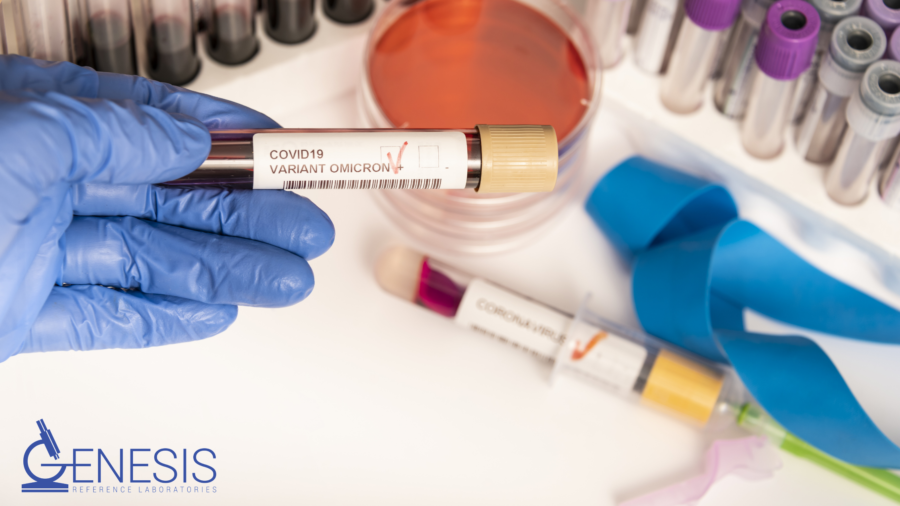Omicron variant, also known as Covid-19 variant B.1.1.529, is the most recent strain of the Covid-19 virus to appear worldwide. The World Health Organization designated Omicron a variant of concern on 11/26/2021. As of 12/20/2021, Omicron had been found in most US states and territories. Research into this new strain is ongoing and somewhat limited at this time. Here’s what we do know as of now.
Evolution
Previous variants of Covid-19 developed through a series of biological mutations, meaning earlier versions evolved into later versions. Each new variant became the dominant strain and were more infectious than the previous strains they mutated from.
Alpha/Beta — Gamma — Delta — Kappa — Epsilon — Eta — Iota — Lambda — Mu
Of note, Omicron variant is not listed in this graphic. What makes Omicron unique is that it did not develop along the evolutionary pathway illustrated above. In fact, it is more closely related to the original Wuhan SARS-CoV-2 virus than it is to the Delta variant of the virus. Omicron is also unique because of how many mutations exist on the spike protein (32).
Origins
Researchers are still unsure exactly where and when Omicron originated. The first traced appearance of Omicron emerged in Botswana, followed by South Africa. The first confirmed case in the United States appeared on 12/2/2021.
Transmission
Early research indicates Omicron is more transmissible than Delta variant but this data is limited. The CDC expects anyone with Omicron to be able to spread it to others, even those who are fully vaccinated and those who are asymptomatic.
Severity
Early research suggests that most cases of Omicron are mild; this data, however, is limited and unknown at this time whether the severity will be comparable to Delta or other previous variants. As transmission rates increase, it is expected that the increasing burden on the healthcare infrastructure could increase the overall impact of the variant in the future.
Testing
Current PCR and rapid tests appear to be able to detect the Omicron variant. Research and development continues on more sensitive tests to detect the Omicron variant specifically.
Treatment
There is no evidence in current research to indicate that current treatments for Covid are more or less effective on Omicron variant. The CDC reports that current vaccines are expected to offer protection against severe illness, hospital admission, and Covid-related death. Breakthrough infections in the fully vaccinated are still likely. Research is ongoing at this time.
While it seems like there are still more questions than answers regarding Omicron variant, researchers are working diligently to get them answered. In the meantime, Omicron will continue to be treated in the same capacity as previous variants of Covid-19.
*Information presented in this blog is for educational purposes only and does not represent the clinical practices nor availability of testing of Genesis Reference Labs.
References
https://www.nsc.org/getmedia/bcd883b3-7b57-4b1a-9371-8a4dedc49adc/omicron-fact-sheet.pdf
https://www.cdc.gov/coronavirus/2019-ncov/variants/omicron-variant.html

